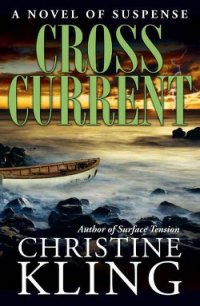Child 44 - Smith Tom Rob (онлайн книги бесплатно полные txt) 📗
If his theory proved correct, if the suspect was in Kimov, then Leo thought it likely that he’d be on the move at first light, whether on his own or aided by his friend. Leo was taking a chance betting that they’d get to the village in time. He’d decided against deploying the local militia stationed at Zagorsk, the nearest major town, since they were in his opinion amateurish, ill-disciplined and undertrained. Even the local MGB divisions weren’t to be trusted with such an operation. Already alert to the fact he was a wanted man, Brodsky was unlikely to surrender. He might fight to the death. He needed to be taken alive. His confession was of paramount importance. Furthermore his escape had embarrassed Leo personally and he was determined to make amends, determined that he should be the one to make the arrest. This wasn’t merely a matter of pride. Nor was it merely that his career depended upon success. The consequences ran deeper than that. Failure in such a high-profile espionage case might result in claims that Leo had deliberately sabotaged the investigation. Failure to recapture the suspect would further implicate him. His loyalty would be called into question.
Check on Those we Trust.
No one was exempt from that rule, not even those who enforced it.
If Brodsky wasn’t in Kimov, if Leo was wrong, then Vasili would be the first in line with a testimonial detailing how his superior officer disregarded the promising Kiev lead. Sensing his weakness, others in the directorate, like animals circling a wounded prey, would almost certainly come forward to denounce him as a poor leader while Vasili positioned himself as Leo’s logical successor. In the hierarchies of the State Security, fortunes could change overnight. For both men much depended upon the location of this traitor.
Leo glanced across at his deputy, a man both handsome and repulsive in equal measure – as if his good looks were plastered over a rotten centre, a hero’s face with a henchman’s heart. There were just the tiniest visible fractures in his attractive facade, appearing at the corners of his mouth, a slight sneer that, if you knew how to interpret it, hinted at the dark thoughts lying beneath his good looks. Perhaps sensing that he was the subject of attention, Vasili turned and smiled a thin, ambiguous smile. Something pleased him. Leo knew immediately that something must be wrong.
He checked the map. With a population of less than a thousand, Kimov was a speck of dust on the Soviet canvas. He’d warned the driver not to expect any road signs. Even at fifteen kilometres per hour this village would appear and disappear in the time it would take to change gear. Yet as Leo ran his finger over the road markings he began to suspect that they’d missed their turning. They were still travelling north when they should be travelling west. Since it was nearly impossible to take any kind of bearings based upon the surrounding landscape he calculated where they were in terms of kilometres. They were too far north. The driver had overshot the mark.
– Turn around!
Leo noticed that neither the driver nor Vasili seemed surprised by the request. The driver mumbled:
– But we didn’t see the exit.
– We’ve missed it. Stop the truck.
The driver gently slowed, pumping the brake in short bursts in order to avoid sliding on the ice. The truck came to a gradual stop, Leo jumped out and in blizzard conditions began to direct the driver through an awkward U-turn, the ZiS-151 being almost as wide as the road. The turn was halfway complete, with the truck at right angles to the road, when the driver seemed to ignore Leo’s instructions, reversing too far and too fast. Leo ran forward banging on the door but it was too late. One of the back tyres ran off the road. It was spinning uselessly in a snow drift. Leo’s anger was tempered by his growing suspicions regarding this driver, who seemed to exhibit an improbable level of incompetence. Vasili had organized the truck, the driver. Leo opened the cabin door, shouting over the wind:
– Get out!
The driver stepped out. By now the officers in the back had also jumped out to survey the situation. They glared at Leo with disapproval. Was this annoyance at the delay, the mission itself, irritation with his leadership? He couldn’t understand it. He ordered one of the other men to take the wheel whilst the entire team, including Vasili, pushed the truck out of the snow. The tyre spun, spraying dirty slush up their uniforms. Finally the snow chains caught the road and the truck lurched forward. Leo sent the disgraced driver to sit in the back. That kind of mistake was more than enough to warrant a written report and a Gulag sentence. Vasili must have guaranteed the driver immunity, a guarantee that would only hold up if Leo failed. Leo wondered how many other members of his team had more invested in his failure than his success. Feeling alone, isolated within his own unit, he took the wheel. He’d drive. He’d navigate. He’d get them there. He could trust no one. Vasili got in beside him, wisely opting to say nothing. Leo put the truck in gear.
By the time they were on the correct road, travelling west, on an approach to Kimov the storm had passed. A weak winter sun began to rise. Leo was exhausted. Driving through the snow had drained him. His arms and shoulders were stiff, his eyelids heavy. They were passing through the rural heartlands – fields, forests. Turning into a gentle valley he saw the village: a cluster of wooden farmhouses, some on the road, some set back, all with square bases and high triangular roofs, a vista that hadn’t changed for a hundred years. This was old Russia: communities built around bucket wells and ancient myths, where the health of cattle was decided by the grace of the Dvorovoi , the yard spirit, where parents told their children that if they misbehaved spirits would steal them and turn them into bark. The parents had been told the stories as children and they’d never grown out of them, spending months stitching clothes only to give them away as offerings to forest nymphs, the Rusalki , who were believed to swing from the trees and could, if they so chose, tickle a man to death. Leo had grown up in the city and these rural superstitions meant nothing to him, baffled as to how their country’s ideological revolution had done little to dislodge this primitive folklore.
Leo stopped the truck at the first farmhouse. From his jacket pocket he took out a glass vial filled with small, unevenly shaped dirty white crystals – pure methamphetamine – a narcotic much favoured by the Nazis. He’d been introduced to it while fighting on the Eastern Front as his country’s army had pushed the invaders back, absorbing prisoners of war and also some of their habits. There had been operations where Leo couldn’t afford to rest. This was one of them. Now prescribed to him by the MGB doctors, he’d used it repeatedly since the war, whenever a mission needed to run all night. Its usefulness couldn’t be underestimated. But its price was a total crash about twenty-four hours later: complete exhaustion which could only be offset by taking more or sleeping for twelve hours. Side effects had begun to manifest themselves. He’d lost weight; the definition of his face had tightened. His powers of recall had faded, precise details and names eluded him, previous cases and arrests had become muddled in his memory and he now had to write notes to himself. It was impossible to judge whether or not he’d become more paranoid as a result of the drugs since paranoia was an essential asset, a virtue which should be trained and cultivated. If it had been amplified by the methamphetamines, that was all to the good.
He tapped a small amount onto his palm, then a little more, struggling to remember the correct dosage. Better too much than too little. Satisfied, he washed it down with the contents of a hip flask. The vodka stung his throat, failing to hide the acrid chemical taste, which made him want to gag. He waited for the sensation to pass, surveying his surroundings. Fresh snow covered everything. Leo was pleased. Outside Kimov itself there were few places to hide. A person would be visible for kilometres, their tracks through the snow easy to follow.
He had no idea which of these farms belonged to Mikhail Zinoviev. Since a military truck parked in the road took away any element of surprise Leo jumped out, drew his gun and moved towards the nearest house. Though the amphetamines hadn’t yet taken hold he already felt more awake, sharpened as his brain prepared itself for the inevitable narcotic surge. He approached the porch, checking his weapon.
Before he’d even knocked on the door an elderly woman with leathery skin appeared. She was wearing a blue-patterned dress with white sleeves, and an embroidered shawl wrapped around her head. She didn’t care for Leo, or his gun, his uniform, or his military truck. She was fearless and made no attempt to hide the lines of disdain carved into her brow.
– I’m looking for Mikhail Sviatoslavich Zinoviev. Is this his farmhouse? Where is he?
As though Leo were speaking a foreign language she cocked her head to one side and made no response. It was the second time in two days that an elderly woman had squared up to him, held him in open contempt. There was something about these women which made them untouchable; his authority meant nothing to them. Fortunately the stalemate was broken when the woman’s son, a man with a strong build and nervous stammer, hurried out of the house.
– Excuse her. She’s old. What can I do for you?
Once again sons made excuses for their mothers.
– Mikhail Sviatoslavich. Where is he? Which is his farm?
Realizing that Leo wasn’t interested in arresting them, that he and his family were safe for another day, the son was greatly relieved. He gladly pointed out his friend’s farm.
Leo returned to the truck. His men had assembled. He split the team into three groups. They’d advance on the house from different sides, one each from the front and back while the third team would approach and surround the barn. Each man was armed with a 9mm Stechkin APS automatic pistol devised specially for use by the MGB. In addition one man in each group carried an AK-47. They were ready for a pitched battle, if it came to that.
– We take the traitor alive. We need his confession. If you’re in any doubt, any doubt at all, you don’t fire.
Leo repeated this command with particular emphasis to the group headed by Vasili. Killing Anatoly Brodsky would be a punishable offence. Their own safety was secondary to the life of the suspect. In response Vasili took command of his group’s AK-47.



